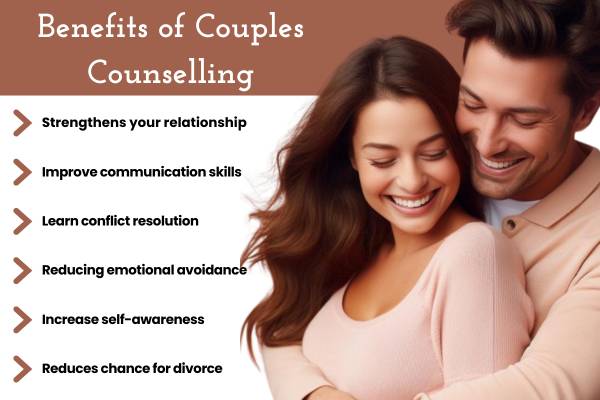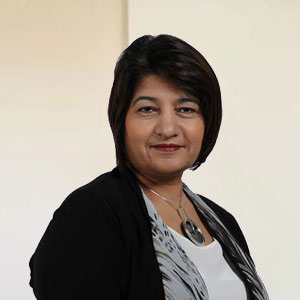Couple Counselling Singapore
Home > Marriage & Family Counselling > Couple Counselling

Improving Communication and Deepening Connection
Welcome to Insightful Counselling – your trusted space for professional and compassionate couples counselling in Singapore. Whether you’re struggling with constant arguments, communication breakdowns, trust issues, or emotional distance, our experienced therapists are here to guide you. We offer a safe, non-judgemental environment where you and your partner can reconnect, resolve conflicts, and rediscover intimacy. Start your journey towards a healthier, more fulfilling relationship today.
Remember when looking into each other’s eyes made you feel butterflies? When you committed, believing that feeling would last forever? Back then, you were so connected, talking for hours, making each other laugh, and even finishing each other’s sentences. Your communication was seamless.
Now, you want that relationship back.
Imagine rekindling that connection, enhanced by years of shared experiences, deeper understanding, and renewed intimacy. At Insightful Counselling, Singapore, we help you rediscover and strengthen your bond, making your relationship more resilient and fulfilling than ever.
You love each other, but something feels off. You’re here because you likely recognise the need for help and are ready to start your journey towards a better relationship. We hope this information helps you decide if Insightful Counselling suits you.
Strains in long-term relationships can be overwhelming, impacting every part of your life. At Insightful Counselling, we work with committed couples to restore safety, security, pleasure, and joy in their relationships.
Many of the couples we work with are high-performing professionals. They strive to balance career and family, often at the expense of their intimacy and downtime. Communication breakdowns are common, but we are here to help you reconnect and revitalise your relationship.
Couples counselling is a talking therapy alongside modalities like the Gottman Method, Transactional Analysis, Cognitive Behaviour Therapy, etc, that helps identify and change negative behaviours, improving your relationship. It aims to help you understand and alter harmful patterns within your relationship. Counselling provides new tools, ideas, and perspectives to help get your relationship back on track, fostering a more warm and loving connection. A couples counsellor can help monitor progress, mediate conflicts, and provide objective feedback, guiding you towards a healthier relationship.
Every couple faces challenges at some point in their relationship. At Insightful Counselling, our therapy sessions offer a safe, supportive space to work through these difficulties and grow together — or apart with compassion.
Here’s how couples counselling can support you:
– Resolve Conflicts: Learn healthier ways to communicate and break out of unproductive or harmful cycles of arguing and blame.
– Restore Intimacy: Reconnect emotionally and physically by addressing the underlying causes of distance, resentment, or loss of desire.
– Manage Crisis Together: Navigate unexpected events like infidelity, health scares, job loss, or emotional outbursts with guidance and support.
– Support an Amicable Separation: For couples who have chosen to part ways, we help facilitate respectful conversations and a smooth, thoughtful transition.

Couples Counselling can help address a wide range of issues in a relationship. Here are some common problems that can be effectively managed through therapy:
- Communication Problems:
- Differences in communication styles.
- Lack of open and honest dialogue.
- Misunderstandings and constant arguments.
- Trust Issues:
- Infidelity or betrayal.
- Suspicion and jealousy.
- Difficulties rebuilding trust.
- Emotional Disconnection:
- Feeling distant or emotionally withdrawn.
- Loss of intimacy and connection.
- Difficulty expressing feelings and emotions.
- Life Changes and Stress:
- Dealing with significant life events like moving, job changes, or having children.
- Managing stress from external factors impacting the relationship.
- Adapting to new roles and responsibilities.
- Financial Conflicts:
- Disagreements about spending and saving.
- Differences in financial priorities.
- Stress related to financial instability.
- Parenting Differences:
- Conflicting parenting styles.
- Disagreements on child-rearing practices.
- Balancing parenting responsibilities.
- Sexual and Intimacy Issues:
- Mismatched sexual desires.
- Lack of physical intimacy.
- Sexual dissatisfaction or dysfunction.
- Family and In-Law Tensions:
- Conflicts with extended family members.
- Boundaries with in-laws.
- Managing family expectations and obligations.
- Unresolved Past Issues:
- Lingering resentment from past conflicts.
- Unaddressed grievances.
- Emotional baggage affecting the present relationship.
- Fear and Anxiety:
- Fear of commitment or settling down.
- Anxiety about the future of the relationship.
- Worries about significant life changes.
Counselling for couples provides a safe and supportive environment where couples can discuss these issues, understand each other’s perspectives, and develop healthy ways to cope and resolve conflicts. Insightful Counselling guides you through this process, helping you build a stronger, more fulfilling relationship.
Couples counselling isn’t just for those on the verge of breaking up — it’s for anyone who wants to build a stronger, healthier connection. At Insightful Counselling, we work with couples at every stage of their relationship journey.
We support:
Dating couples exploring commitment and deeper connection
Engaged couples preparing for a strong and conscious marriage
Married couples navigating life transitions, parenting, or long-term stress
LGBTQ+ couples seeking inclusive and affirming relationship support
Couples considering separation, looking for clarity, closure, or healing

Couples counselling offers numerous advantages, helping partners strengthen their relationship and resolve conflicts. Here are some key benefits:
- The Therapist as a Facilitator:
One significant benefit of couples counselling is the therapist’s role as a facilitator. A therapist provides both partners with a neutral, supportive environment in which they can express themselves freely. They guide the conversation, ensuring both voices are heard and helping navigate complex topics constructively. This facilitative role is crucial for identifying underlying issues and fostering productive dialogue, ultimately leading to a stronger, healthier relationship.
- Enhanced Communication:
Counselling helps you and your partner improve communication, fostering more transparent and effective dialogue.
- Safe Environment for Resolution:
Therapy does not involve judgment or escalation, so issues can be identified and addressed without fear of judgment.
- Understanding Needs:
You’ll learn to hear and understand each other’s needs without resentment or anger, leading to a more compassionate relationship.
- Feeling Valued:
Counselling can help you feel more valued and connected to your partner, deepening your emotional bond.
- Renewed Intimacy:
Both physical and emotional intimacy can be revitalised through counselling, rekindling your relationship.
- Present and Future Focused:
Therapy encourages moving past old grievances and focusing on a brighter present and future together.
- Better Understanding:
You’ll better understand both your and your partner’s needs, promoting mutual respect and empathy.
- Relationship Clarity:
Counselling can help you determine whether to continue within your relationship or marriage, providing clarity and direction.
These benefits highlight how Couples Counselling can foster a healthier, more fulfilling relationship, addressing both immediate issues and long-term goals.
There is usually an initial assessment, a goal-setting process, and regular therapy sessions. Couples identify problems and develop solutions together with their therapist.
– Initial Assessment: Identify the key issues and set goals.
– Regular Sessions: Weekly or bi-weekly meetings to work through problems.
– Progress Evaluation: Monitoring improvements and adjusting strategies as needed.
Various therapeutic techniques are employed to address different aspects of relationship issues:
– Gottman Method Couple Therapy: Research-backed approach building relationship skills, managing conflict, and fostering intimacy in Singapore. Practical exercises strengthen communication.
– Transactional Analysis (TA): Examines interactions to understand communication patterns and improve dynamics. TA helps couples identify negative behaviours.
– Cognitive-Behavioural Therapy (CBT): Reframes negative thoughts and develops healthier thinking patterns.
– Talk Therapy: Provides a safe space for open communication and conflict resolution.
– Mindfulness Exercises: Promotes awareness and presence in relationships.
These techniques are tailored to meet each couple’s unique needs, promoting healthier and more fulfilling relationships. Aim to improve communication, resolve conflicts, and build stronger emotional bonds.
Ready to reconnect with evidence-based therapy? WhatsApp +65 83287060 now for your first couples counselling session with our registered therapists.
Couple counselling or Marriage counselling is highly effective for couples looking to resolve relationship issues. According to the American Association for Marriage and Family Therapy, an estimated 70-90% of couples experience improvement in their relationship after counselling. Prioritising a healthy marital relationship is vital as it influences emotional, physical, and mental well-being. At Insightful Counselling, our professional, licensed marriage counsellors are ready to help you strengthen your marriage and achieve lasting positive changes.
Starting couples counselling is simple. Contact Insightful Counselling to schedule an initial assessment and begin your journey towards a healthier, happier relationship.
– Contact Us: Reach out to schedule an appointment.
– Initial Assessment: Discuss your issues and goals with a therapist.
– Begin Therapy: Start working on improving your relationship with professional guidance.
Through our counselling sessions with our experienced therapists in Singapore, couples gain new tools to improve their relationships.
What Should You Expect from a Couples Therapy Session?
A typical session involves discussing issues, exploring emotions, and working on practical solutions. Therapists guide couples through exercises and strategies to improve their relationship.
– Discussion of Issues: Openly talking about problems and concerns.
– Emotion Exploration: Understanding each other’s feelings and perspectives.
– Practical Exercises: Working on techniques to improve communication and resolve conflicts.

Counselling provides a supportive environment to address the pain and betrayal caused by infidelity. It helps couples rebuild trust and move forward.
– Rebuilding Trust: Developing transparency and honesty.
– Emotional Healing: Processing feelings of hurt and betrayal.
– Strengthening the Relationship: Focusing on positive changes and future goals.
Conflict resolution is crucial for maintaining a healthy relationship. Therapy provides tools to manage disagreements without damaging the relationship.
– Identifying Triggers: Recognising what causes conflicts.
– Developing Solutions: Creating strategies to resolve disagreements.
– Maintaining Respect: Ensuring both partners feel heard and valued.
Therapy helps couples enhance their emotional and physical intimacy by addressing underlying issues and improving communication.
– Building Emotional Connection: Strengthening the bond through open communication.
– Enhancing Physical Intimacy: Exploring ways to improve physical closeness.
– Addressing Barriers: Identifying and resolving issues that hinder intimacy.

Why Choose Insightful Counselling for Couples Therapy in Singapore?
Insightful Counselling Singapore offers personalised therapy tailored to each couple’s unique needs. Our experienced therapists use evidence-based techniques, such as the Gottman Method, Transactional Analysis, Cognitive Behaviour Therapy, Talk Therapy, and more, to support and guide you.
- Experienced Therapists: Professionals with extensive experience in couples therapy.
- Personalised Approach: Therapy tailored to your specific relationship needs.
- Supportive Environment: A safe and understanding space to explore and resolve issues.
- Never judge one-way or with a biased outlook
Get Back The Happy Family You Missed
Understanding grows when love and respect flow between partners — it can’t be forced or taught. But at Insightful Counselling, we help you uncover the importance of true understanding in your relationship.
With consistent counselling sessions, you’ll begin to see:
- Stronger emotional connection and improved communication
- Healthier ways to manage and resolve conflicts
- A fresh start — rebuilding a stronger, more loving relationship

Meet Our Couple Counseling Experts
Reena Goenka, MSc (Counselling), SAC Master Clinical Member: With over 15 years of experience, Reena specialises in using Transactional Analysis to enhance self-awareness and understand relationship dynamics in premarital counselling. Her approach helps couples explore and improve their communication and connection before and after marriage.
Adeeti Jain, MSc (Counselling), SAC Associate Member:
Adeeti brings nearly two decades of experience from government and corporate careers before specializing in couples and marital therapy. Master of Counselling (Advanced) from Swinburne University Australia, she excels in Gottman Method for premarital counselling, family therapy interventions, and helping Singapore couples manage emotional and behavioural challenges through research-backed approaches.

With over 25 years of professional experience before specializing in counselling, Yap Huay Khem creates calm, non-judgmental spaces for couples therapy. Master of Counselling (Advanced) from Swinburne University, she excels in Transactional Analysis and Family Therapy interventions, helping Singapore couples explore relationship dynamics safely while building interpersonal coping skills.

Case Studies: Exploring Values and Beliefs in Couple Counselling
Detailed Case Study: Tom and Erica’s Journey with Transactional Analysis (not their real names) are used here to maintain confidentiality.
Tom and Erica came to Insightful Counselling because they were having everyday arguments and clashes over values and beliefs, particularly regarding work, cleaning, kitchen work, punctuality, and their sexual life. Many of their conflicts were filled with “shoulds,” leading to frustration and misunderstandings.
Key Issues Identified:
– Tom’s Dissatisfactions: Erica’s approach to her work and household chores, her expectations around kitchen work, and differences in punctuality.
– Erica’s Dissatisfactions: Tom’s attitudes towards cleanliness, his approach to time management, and issues in their sexual relationship.
Therapy Focus:
The therapy was centred around Transactional Analysis, which involved:
– Understanding Values and Beliefs: Helping both partners recognise the underlying values and beliefs driving their behaviours.
– Ego State Awareness: Identifying the ego states (Parent, Adult, Child) from which they communicated.
– Creating Awareness: Fostering a better understanding of each other’s needs and how to express them constructively.
– Improving Communication: Developing strategies to enhance their communication and reduce conflicts.
Progress Achieved:
– Communication from the Fun Child: They learned to communicate from the Fun Child ego state, enhancing their ability to enjoy fun and intimate times together.
– Nurturing Parent Voice: Their Parent voice started to be more of a Nurturing Parent rather than a Critical Parent, offering support rather than criticism.
– Increased Understanding: More frequent and meaningful conversations helped them understand each other better and align their expectations.
Communicate from the Adult Ego State: This allowed them to discuss their needs and expectations without resorting to criticism or defensiveness.
Ability to address conflicts—Any relationship cannot be without conflicts. The couple learned to respect and address these.
Over time, Tom and Erica learned to communicate more effectively, enjoy their time together, and support each other in a nurturing way. Their relationship significantly improved, with fewer arguments and a deeper emotional connection.
Case Studies: Exploring Values and Beliefs in Couple Counselling
Detailed Case Study: Tom and Erica’s Journey with Transactional Analysis (not their real names) are used here to maintain confidentiality.
Tom and Erica came to Insightful Counselling because they were having everyday arguments and clashes over values and beliefs, particularly regarding work, cleaning, kitchen work, punctuality, and their sexual life. Many of their conflicts were filled with “shoulds,” leading to frustration and misunderstandings.
Key Issues Identified:
– Tom’s Dissatisfactions: Erica’s approach to her work and household chores, her expectations around kitchen work, and differences in punctuality.
– Erica’s Dissatisfactions: Tom’s attitudes towards cleanliness, his approach to time management, and issues in their sexual relationship.
Therapy Focus:
The therapy was centred around Transactional Analysis, which involved:
– Understanding Values and Beliefs: Helping both partners recognise the underlying values and beliefs driving their behaviours.
– Ego State Awareness: Identifying the ego states (Parent, Adult, Child) from which they communicated.
– Creating Awareness: Fostering a better understanding of each other’s needs and how to express them constructively.
– Improving Communication: Developing strategies to enhance their communication and reduce conflicts.
Progress Achieved:
– Communication from the Fun Child: They learned to communicate from the Fun Child ego state, enhancing their ability to enjoy fun and intimate times together.
– Nurturing Parent Voice: Their Parent voice started to be more of a Nurturing Parent rather than a Critical Parent, offering support rather than criticism.
– Increased Understanding: More frequent and meaningful conversations helped them understand each other better and align their expectations.
Communicate from the Adult Ego State: This allowed them to discuss their needs and expectations without resorting to criticism or defensiveness.
Ability to address conflicts—Any relationship cannot be without conflicts. The couple learned to respect and address these.
Over time, Tom and Erica learned to communicate more effectively, enjoy their time together, and support each other in a nurturing way. Their relationship significantly improved, with fewer arguments and a deeper emotional connection.

Frequently Asked Questions
Couple counselling helps you and your partner resolve conflicts and improve communication. It creates a safe space to talk about problems and strengthen your bond.
If you argue often, feel distant, or struggle with trust, counselling can help. A therapist can guide you through these challenges to reconnect.
Counselling can help with:
– Communication problems
– Infidelity
– Intimacy issues
– Money disagreements
– Life changes
You’ll share your concerns, and the therapist will guide discussions. You’ll learn ways to improve communication and solve problems together.
Some couples see progress in a few sessions, while others need more time. Your therapist will create a plan that suits your goals.
Yes! We offer secure online sessions so that you can join from home. It’s a convenient option if you have a busy schedule.
Yes, all sessions are private and follow strict rules to protect your information.
It’s easy! Visit our website, complete the form, or message us on WhatsApp. We’ll help you schedule your session.
Yes, our counsellors have advanced training in relationship therapy and years of experience helping couples.
Yes, individual counselling can still be helpful. It can improve your approach to the relationship and might encourage your partner to join later.
Encouraging your partner to attend therapy starts with open and honest communication. Express your concerns calmly, focusing on how therapy can improve your relationship rather than placing blame. Share specific benefits, such as better communication and deeper emotional connection. Offer to attend a session together to ease any concerns. Reassure them that therapy is a safe space and emphasize that seeking help is a sign of strength, not weakness. If they remain hesitant, consider suggesting an initial consultation to explore the process without commitment.
Some insurance plans may cover it. Check with your provider, and we’ll give you the documents you need for a claim.
Counselling can help save your marriage by addressing issues, improving trust, and building better communication. Starting early increases your chances of success.
Take the first step to a healthier relationship. Schedule your couple counselling session now.
Relationships can indeed be challenging, with ups and downs along the way. Life circumstances, work commitments, family responsibilities, and social media can impact how you and your partner interact. When couples decide to live together, get married, or have children, these new demands can strain the relationship further.
However, even if your relationship has lost its intimacy or you’re arguing more than ever, it doesn’t mean it’s beyond saving. Remember, you chose your partner for a reason. Building a solid relationship requires time, effort, and sometimes professional help.
If you’re experiencing difficulties, try resolving issues on your own first. If that’s not working, seeking professional help through couples therapy can be beneficial. This type of therapy, once known as marriage counselling, is suitable for any relationship, regardless of marital status, age, or gender.
Book An Appointment for Couple Counselling Singapore
Feeling distant or overwhelmed in your relationship? Let’s work through it — together.
Testimonials
Over the last 1.5 years I have been working with Adeeti either in a 1:1 capacity or for couples counselling. The sessions have been invaluable. Adeeti's has helped my husband and I better communicate, learn how to turn towards each other as opposed to creating situations where we turn away from one another and most importantly she is teaching us how to have healthy conflict and carefully coaches us on the language we can use and the impact our actions can have on one another. Both my husband and I have found the sessions to be insightful, helpful and strengthen our love maps with each other. Would highly recommend couples counselling or 1:1 sessions with Adeeti!
Lily is an insightful and patient counsellor. Patient enough to listen to my troubles and not judge. Counselling by and large is not instantaneous, it really helps when professionals have the will to tough it out, and intervene at the right time.



